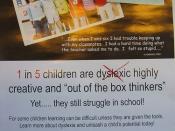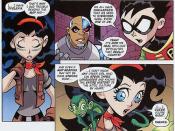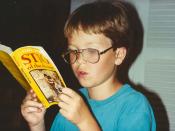Developmental dyslexia refers to a condition that involves difficulties with reading and writing, learning and retrieving associations between verbal and visual information. Difficulties in dealing with phonological information (speech sounds) within short-term memory have also been identified. Any task that requires the processing of verbal information, mental arithmetic and directional difficulties are also common. Approximately 5% of a population that may have dyslexic problems that are quite severe with 10% having milder difficulties. Although dyslexia is a term that is quite commonplace today, it is quite a recent term and previously had been known as 'congenital word blindness' which originated from Scottish eye surgeon James Hinshelwood in the early 20th centaury.
There has been research into areas that surround the condition and this essay will compare how the differing perspectives can be used to explain dyslexia, particularly to examine how far that dyslexia cognitive deficit.
Uta Frith (1999) provided a framework for thinking about the nature of developmental difficulties; she suggested there are three perspectives on any developmental condition, behavioral, cognitive and biological.
These can also be affected by the individual's environment.
Environment
biological
cognitive
behavioural
Table - Frith's three level framework (source:Frith, 1999,p.193)
Behavioural accounts of dyslexia can be directly observed for example in the classroom and also by individual accounts of people's experiences with dyslexia. An example of this is from the accounts of Alexander Faludy who is severely dyslexic. He described his experiences as being 'clumsy and uncoordinated', he was unable to read for some time and as a result of being labeled 'not normal' he was bullied at school. However through alternative teaching aided by his parents, and challenging how examining boards assessed work, he passed his GCSE and A'level English literature at age 11. He described how a teacher ripped pages of his book out...


